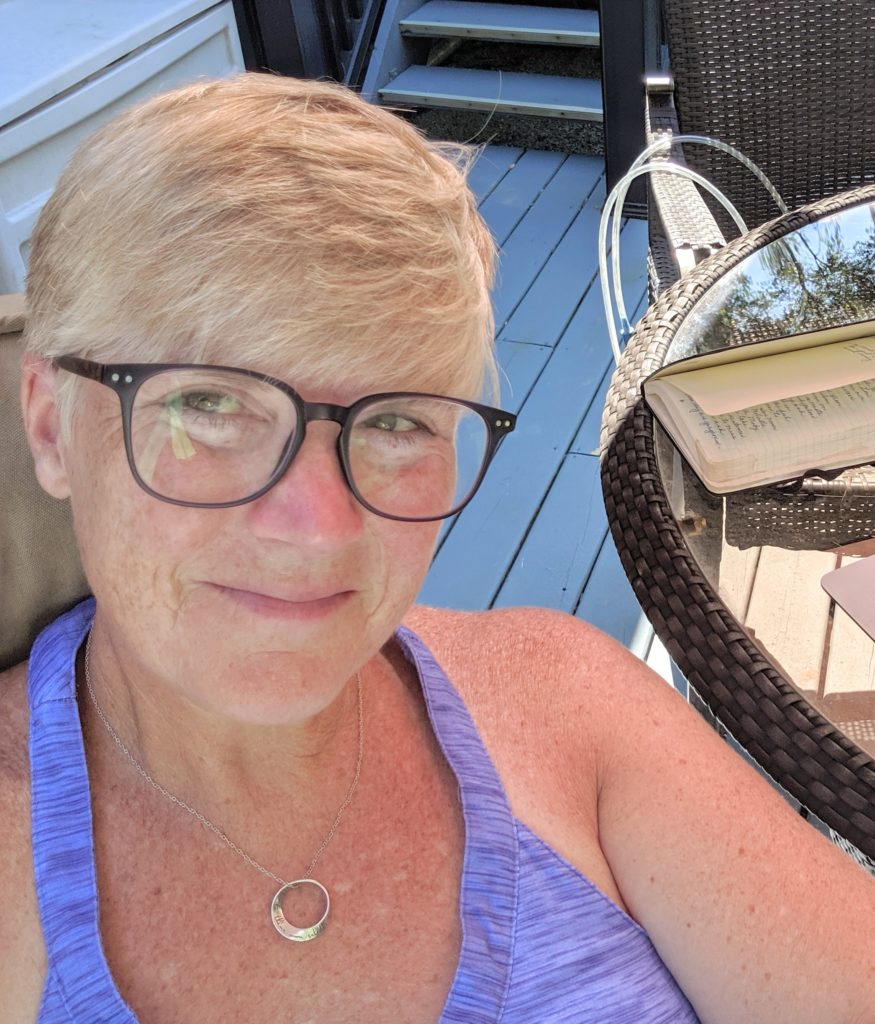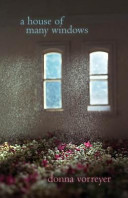
As a former intern for Sundress Publications, I check the collective’s website and social media from time to time to stay abreast of what’s new in the poetry world; things that may otherwise go unexplored or unnoticed by the mainstream. I happened to see a post announcing Donna Vorreyer’s forthcoming book. Intrigued, I read some excerpts of the Chicago-based poet’s past work, and immediately ordered her previous two full-length collections: Every Love Story is an Apocalypse Story (2016) and A House of Many Windows (2013), both published by Sundress. I had been wanting to discover more poetry after a two-year stint of reading non-fiction (mostly memoir) almost exclusively, and starting off with her work proved to be a fine decision.


Every Love Story was particularly riveting, braiding together the ecstasy and agony of a powerful―but ultimately doomed―love. There is a chronology to the work, but the poems can be read in any order. The language and imagery are stunning throughout elegiac verse. Likewise, A House is beautifully written, each stanza offering an intimate glimpse into the speaker’s multilayered experiences in sometimes visceral ways, and in a manner that speaks to the larger woman―and human―experience. To be unmoved by her work is an enterprise I find inconceivable.
I’m happy to report that her third poetry manuscript, Somewhere Between Sweet and Grief, will be released in 2020. Donna was gracious enough to grant Pif an interview after I, shamelessly fan-girling, reached out to her:
How did you get started as a poet? What was it that drew you to the craft?
I always loved the kinesthetic properties of putting pen on blank paper and making something empty come to life. I used to ask my mother if she wanted me to copy out recipes or write a letter for her just so I could move the pen across the paper. (I still draft longhand before going to the computer.) However, my mother kept a scrapbook of writing and art for me and my brothers, and she saved poems I wrote as young as first grade. I actually had a decent sense of rhyme! But I believe it was when I taught myself to play guitar (poorly, I might add) in junior high and started writing my own songs that poems (because lyrics are a type of poetry, aren’t they?) became a regular part of my life.
This may be an annoying question, sorry: what is your writing process like? And in what environment do you most like to write?
Not annoying at all! Environment? Really anywhere that I can control the noise level and distractions. I don’t do well in coffee shops or other public writing spaces unless I can block things out with headphones. My writing process, however, has changed over the years as my life has changed. When I first returned to writing in my late 20s/early 30s, I almost exclusively wrote in the summer and on school breaks. I was too tired, too busy as a working mother, during the school year to give my own words my full attention. So the process used to be “collect, observe, collect” and then WRITE ALL THE THINGS. I also attended summer workshops, especially the Iowa Summer Writing Festival, for years to learn all I could, and I read voraciously. This was my version of an MFA.
As my son got older, I had chunks to time to myself―some that I took, and some that were found, like sitting in the car during his guitar lessons. Then I had a more steady practice, where I tried to work on perhaps one piece a week, taking an hour here or there to focus on creating big blocks of text that would then get honed done to more finished work. Lately, I seem to combine the two. I take down a lot of notes, phrases, observations, lines that come, odd ideas. Some days I sit down and just empty my head of whatever is inside. Now as an empty-nester and soon-to-be retiree, I have time to sit down with all of those thoughts and render them into poems. I’m not sure how my process will look when I retire from teaching at the end of this year. I’ve never had the time to create a daily writing “schedule,” so we’ll see!
From where do you draw inspiration? This could be general or more specific things (or both.)
The inspiration question is difficult. If I waited until I was inspired to write, I would never write. Maybe it’s easier to say what moves me. Other writing, of course. The natural world, certainly, which shows up quite frequently in my writing. Small kindnesses, those moments you see in the world that can’t help but make you smile. Visual art. I especially love the art of Matt Kish and Claire Morgan. And music, which is hardest to write about because it’s visceral for me. There are songs that literally make me weep every time I hear them. (You can confirm with my husband who has watched me cry through Bring Me the Horizon’s “Drown” or Andrew McMahon’s “Cecilia and the Satellite” multiple times.) Something about the way the words and music and the performance are happening together wrecks me. And they aren’t necessarily sad songs―that’s why it’s so hard to put into words.
How have your various identities (and/or experiences in these identities) informed your work? Is there any subject matter or situation that you hold back from exploring in your poetry? In general, is anything taboo? What themes have you found yourself drawn to recently?
My roles as a mother and as a teacher have certainly impacted my process and also my content. As a middle school teacher, I know that students are sometimes Googling my work, so I don’t often publish pieces that explore sex or violence that wouldn’t be appropriate for 11-13-year-olds to read. I don’t often write those poems, either, to be honest, as there are other people writing them much better than I could, writing from places of personal experience or confidence that I do not possess.
As a middle-aged woman, I have recently been writing quite a bit about aging—the slow betrayal of the body, one’s growing invisibility in public arenas, how age changes one’s perspective on the world. I also, unfortunately, lost both of my parents last year within five months of each other. This means that I have been writing about how one deals with the role-switching that occurs when, as an adult child, you become a caretaker for ill parents and how that manifests as guilt and remorse and dread and so many other emotions when they leave the world. The complexity of grief makes elegy the hardest writing work I’ve ever done.
What is the one poem you feel everyone should read in his or her lifetime? (If it’s hard to pick just one, feel free to include as many as you want).
There are many poems that I wish everyone would read, but I’ll choose a few. One is Jack Gilbert’s “Michiko Dead” which is one of the simplest and most profound descriptions of grief I have ever read. Another is Shakespeare’s Sonnet 116, my favorite love poem. (I pontificate about it here…) And although I could make this list book-length and create my own anthology, the third poem I will suggest is John Murillo’s “Upon Reading that Eric Dolphy Transcribed Even the Calls of Certain Species of Birds,” for its emotional power and its prowess at weaving image and narrative. Masterful. (Go read it now―you won’t be sorry.)
What is something you read recently that you enjoyed? This could be poetry or something else.
One of my favorite novels of the past year has been Circe by Madeline Miller. I loved the way the author recreated that mythological character as a complex and strong woman and how she handled the difficult framework of plotting an immortal character’s story timeline. I can barely write a long poem, so I admire anyone who can spark my interest in a piece of fiction that well.

What can we look forward to in your third book?
The third book, currently titled Somewhere Between Sweet and Grief, tries to excavate that fracture, that chasm, between the highs and lows of living, the place where, as humans in a difficult world, we spend most of our time. I don’t think I could write about grief if there also wasn’t recognition of the joy and love that buoy me through the hardest times. So this book is, among other things, an elegy, an exploration of aging, and an honoring of the beauty and love that keep me from falling into that abyss.
Donna Vorreyer is the author of Every Love Story is an Apocalypse Story and A House of Many Windows, as well as eight chapbooks. Her poems and reviews have appeared in Rhino, Tinderbox Poetry, Poet Lore, Sugar House Review, Waxwing, and many other journals. Her third full-length collection is forthcoming in 2020 from Sundress Publications. Learn more about her and her work at donnavorreyer.com.